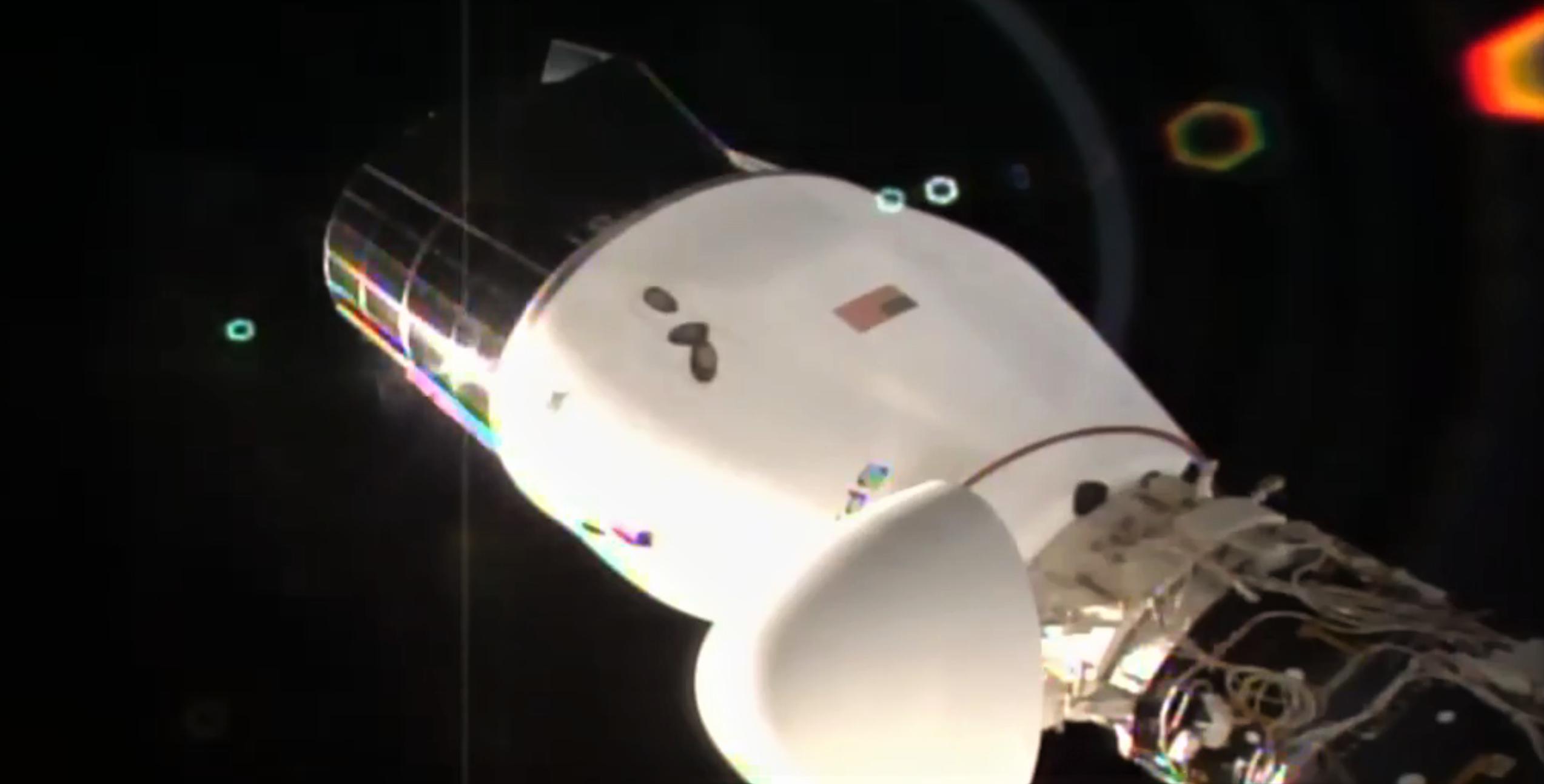
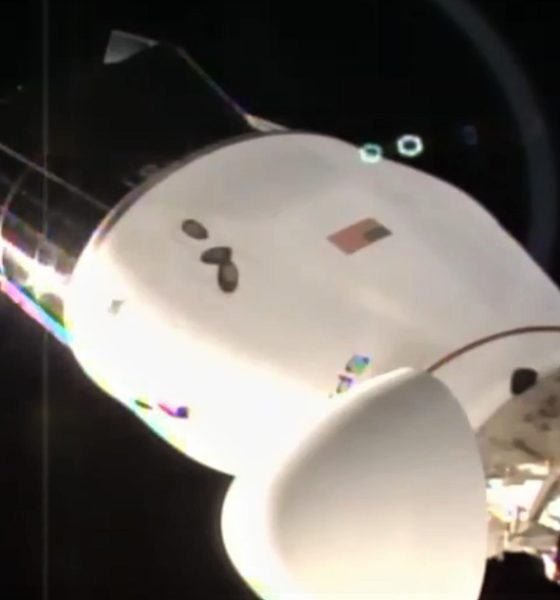
News
SpaceX’s first Cargo Dragon 2 recovery delayed by Atlantic Ocean weather
Update: The first undocking, orbital reentry, and splashdown of SpaceX’s upgraded Dragon 2 cargo spacecraft was aborted by NASA ground controllers minutes before the process was scheduled to begin. According to NASA, weather in the preferred recovery zone – off the coast of Daytona Beach, Florida – was to blame.
“As a result of adverse weather conditions at the targeted splashdown zone off the coast of Daytona Beach, Florida, SpaceX has waved off today’s planned departure of an upgraded SpaceX Dragon resupply spacecraft. Teams are currently assessing weather conditions to determine the next opportunity for undocking.”
NASA – January 11th, 2021
SpaceX’s upgraded Cargo Dragon spacecraft is just a day or two away from its first International Space Station (ISS) departure, Earth reentry, and ocean splashdown.
The uncrewed Dragon capsule (known as C208) and its expendable trunk section are currently scheduled to depart from the ISS no earlier than the morning (EST) of January 12th – set to be the first time an uncrewed US cargo spacecraft autonomously undocks from the orbital outpost. Previous US cargo vehicles – including SpaceX’s own Cargo Dragon – have relied on berthing, rendezvousing with the ISS and hovering close by while a giant robotic arm was used to capture and secure each spacecraft.
Cargo Dragon 2 wont be the first outright to do so: the uncrewed European ATV and Russian Progress vehicles both used the Russian Docking System (RDS) to deliver cargo to the ISS over the last two decades. However, Dragon’s CRS-21 departure will be the first time an uncrewed cargo spacecraft completes a full mission with the help of NASA’s new International Docking Adapter (IDA), as well as an IDA’s third round-trip use ever.
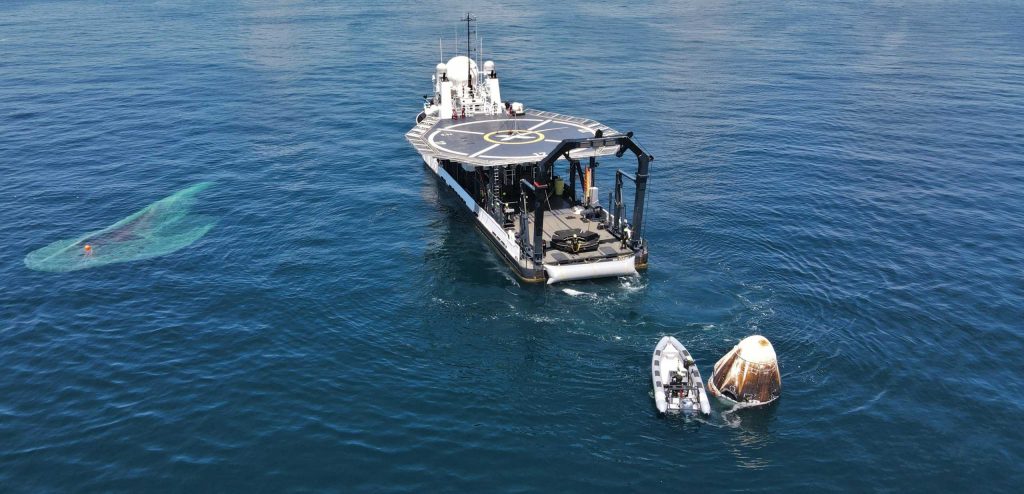
In fact, SpaceX is solely responsible for the four total uses of the Space Station’s twin IDA ports – both fittingly delivered by Cargo Dragons in 2016 and 2019. In March 2019, Crew Dragon – flying without astronauts on its Demo-1 mission – became the first spacecraft ever to autonomously dock with and undock from an IDA port. In May and August 2020, a separate Crew Dragon spacecraft repeated the feat, autonomously docking and undocking with two NASA astronauts onboard.
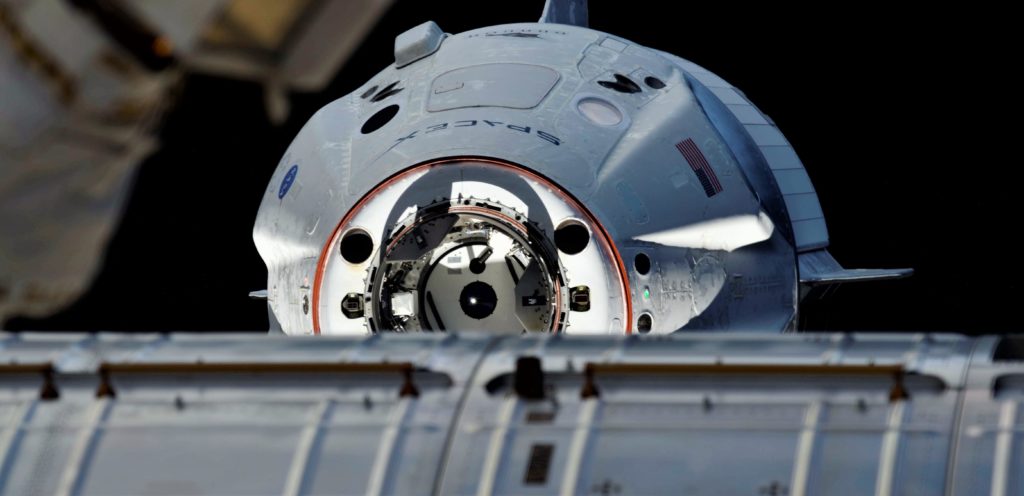
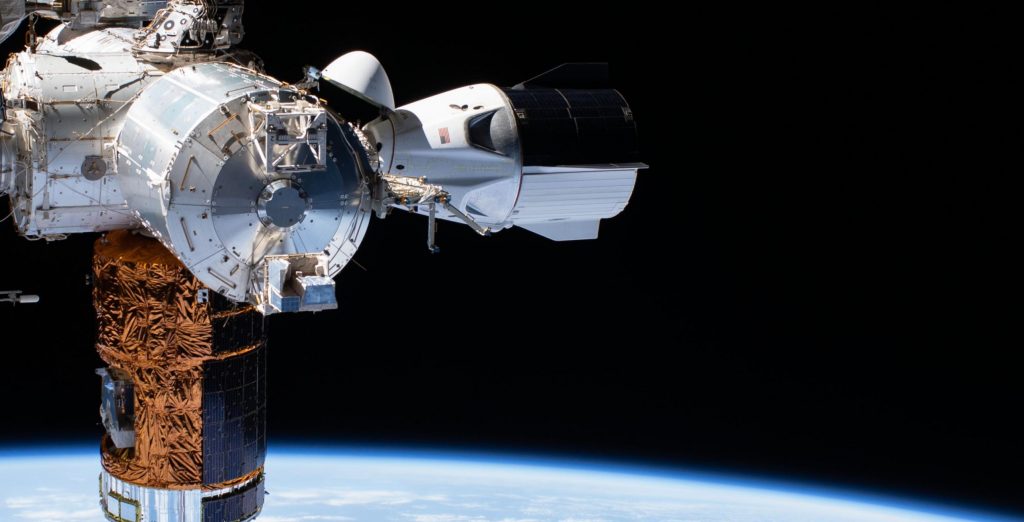
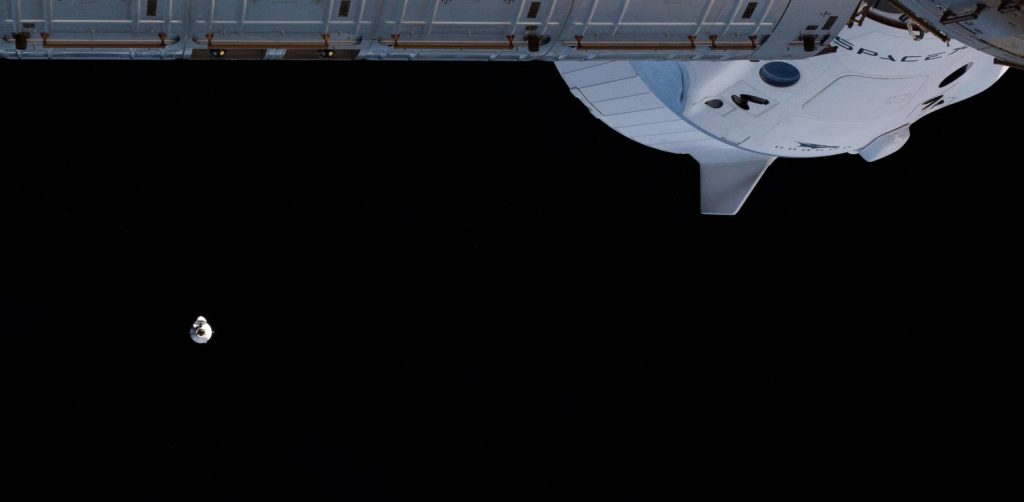
In November 2020, SpaceX launched Crew Dragon on its first operational ferry mission with four astronauts. The spacecraft safely docked to the ISS and is scheduled to remain there until at least March or April 2021. Most recently, SpaceX launched its first Cargo Dragon 2 on December 6th, 2020, and the spacecraft docked without issue a day later. Now scheduled to undock as early as January 12th, a successful departure, reentry, and splashdown will truly mark the start of a new era of autonomous SpaceX spacecraft.
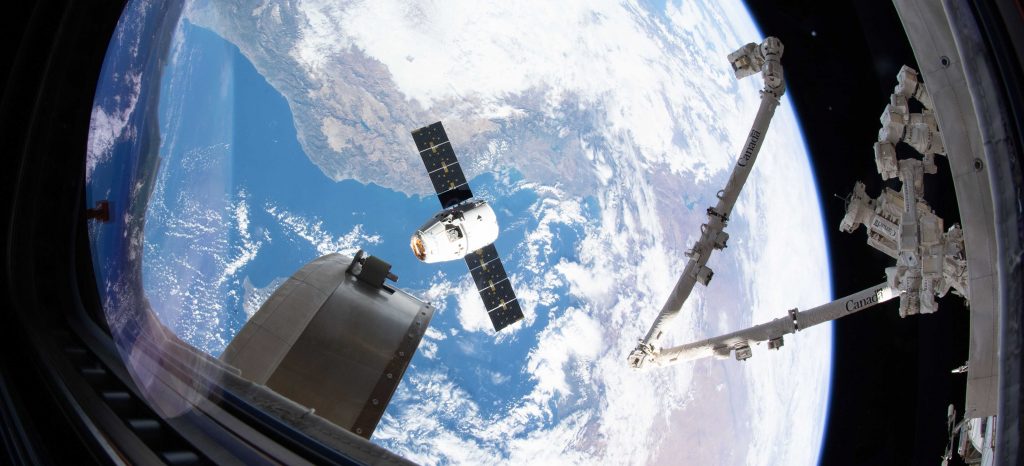
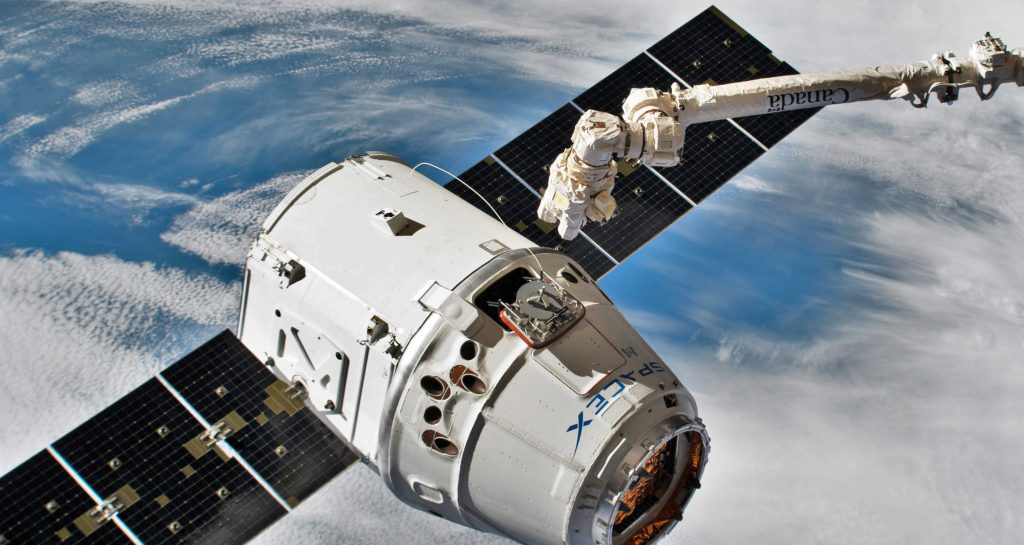
Unlike the largely manual berthing method used by Japanese HTV, Orbital ATK Cygnus, and SpaceX Cargo Dragon spacecraft, SpaceX’s Crew Dragon and Cargo Dragon 2 vehicles took advantage of IDA’s mechanical differences to heavily automate the cargo and crew delivery process. Using LiDAR, cameras, complex software, SpaceX’s new Dragons effectively dock themselves, ultimately requiring less training and work for the station astronauts that would otherwise need to manually support berthing operations.
Used to support refrigerated or otherwise power-intensive cargo, Cargo Dragon 2 features twice as many “powered lockers” as its predecessor and is scheduled to return an impressive ~2360 kg (5200 lb) of cargo – including dozens of science experiments – to Earth. More than a decade after Dragon became the first private spacecraft to successfully reenter Earth’s atmosphere, Cargo Dragon is still the only spacecraft in the world capable of delivering substantial cargo from Earth to orbit and from orbit to Earth.
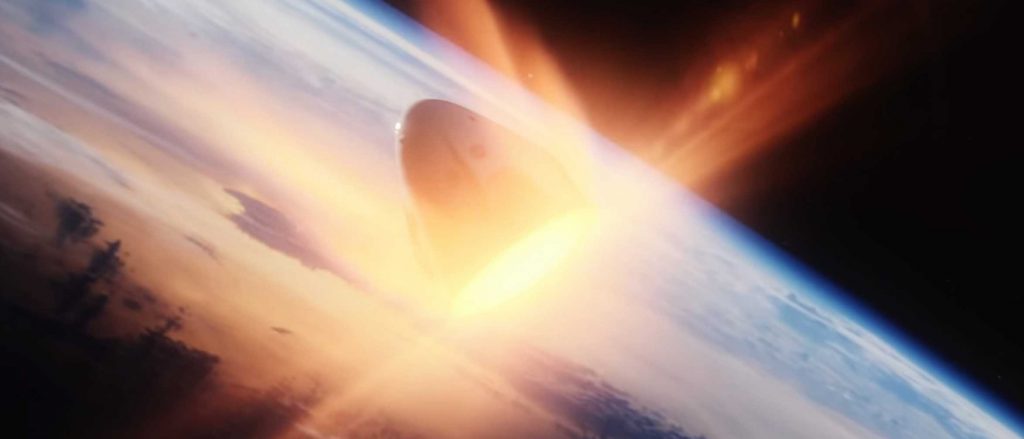
After detaching from its expendable trunk section and reentering Earth’s atmosphere, Cargo Dragon C208 will also become the first cargo spacecraft to splash down in the Atlantic Ocean or Gulf of Mexico thanks to SpaceX’s decision to consolidate its California and Florida Dragon recovery operations on the East Coast.
Also used to recover Crew Dragons, SpaceX ship GO Searcher departed Port Canaveral for its central role in CRS-21’s imminent splashdown. Once Cargo Dragon C208 splashes down at one of four available recovery zones, SpaceX recovery teams will grab and secure the spacecraft and open its hatch. Uniquely time-sensitive cargo can then be transferred to a waiting helicopter for an unprecedentedly rapid return to researchers back on land,
Stay tuned for SpaceX and NASA’s live coverage of Cargo Dragon 2’s first ISS departure and recovery on January 12th or 13th.

News
Tesla FSD (Supervised) fleet passes 8.4 billion cumulative miles
The figure appears on Tesla’s official safety page, which tracks performance data for FSD (Supervised) and other safety technologies.

Tesla’s Full Self-Driving (Supervised) system has now surpassed 8.4 billion cumulative miles.
The figure appears on Tesla’s official safety page, which tracks performance data for FSD (Supervised) and other safety technologies.
Tesla has long emphasized that large-scale real-world data is central to improving its neural network-based approach to autonomy. Each mile driven with FSD (Supervised) engaged contributes additional edge cases and scenario training for the system.
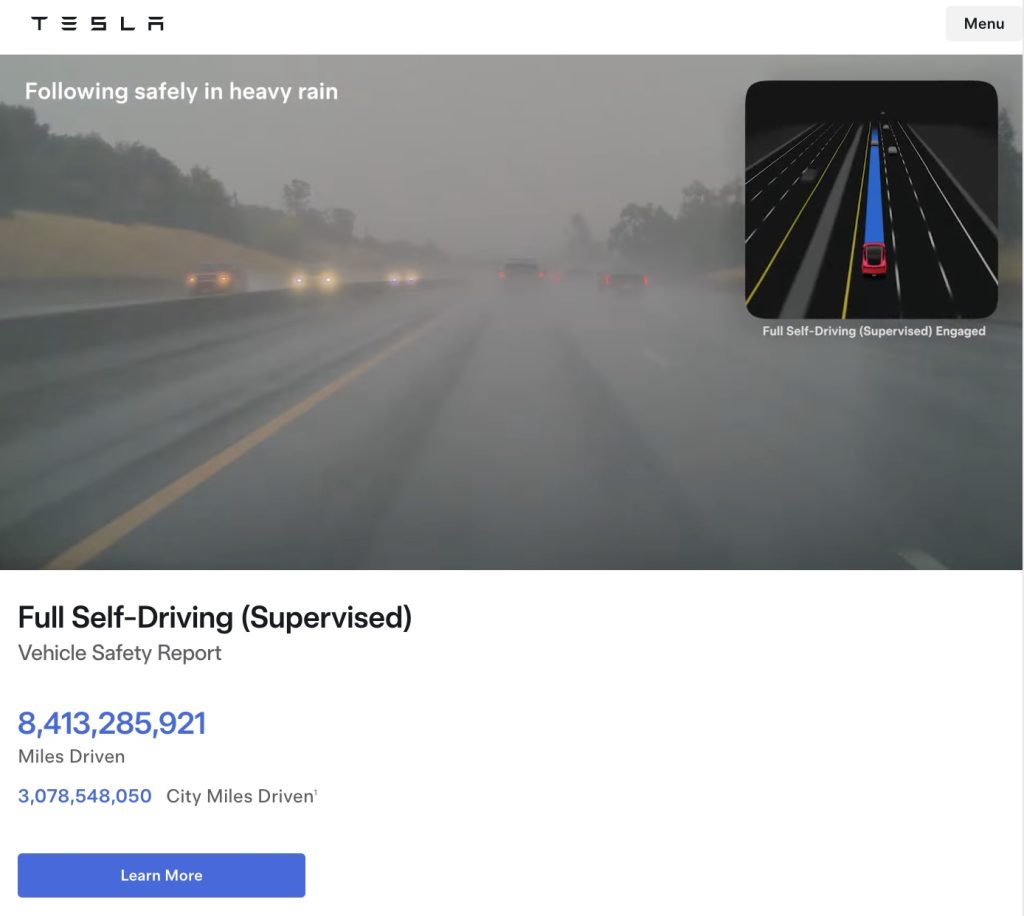
The milestone also brings Tesla closer to a benchmark previously outlined by CEO Elon Musk. Musk has stated that roughly 10 billion miles of training data may be needed to achieve safe unsupervised self-driving at scale, citing the “long tail” of rare but complex driving situations that must be learned through experience.
The growth curve of FSD Supervised’s cumulative miles over the past five years has been notable.
As noted in data shared by Tesla watcher Sawyer Merritt, annual FSD (Supervised) miles have increased from roughly 6 million in 2021 to 80 million in 2022, 670 million in 2023, 2.25 billion in 2024, and 4.25 billion in 2025. In just the first 50 days of 2026, Tesla owners logged another 1 billion miles.
At the current pace, the fleet is trending towards hitting about 10 billion FSD Supervised miles this year. The increase has been driven by Tesla’s growing vehicle fleet, periodic free trials, and expanding Robotaxi operations, among others.
With the fleet now past 8.4 billion cumulative miles, Tesla’s supervised system is approaching that threshold, even as regulatory approval for fully unsupervised deployment remains subject to further validation and oversight.
Elon Musk
Elon Musk fires back after Wikipedia co-founder claims neutrality and dubs Grokipedia “ridiculous”
Musk’s response to Wales’ comments, which were posted on social media platform X, was short and direct: “Famous last words.”
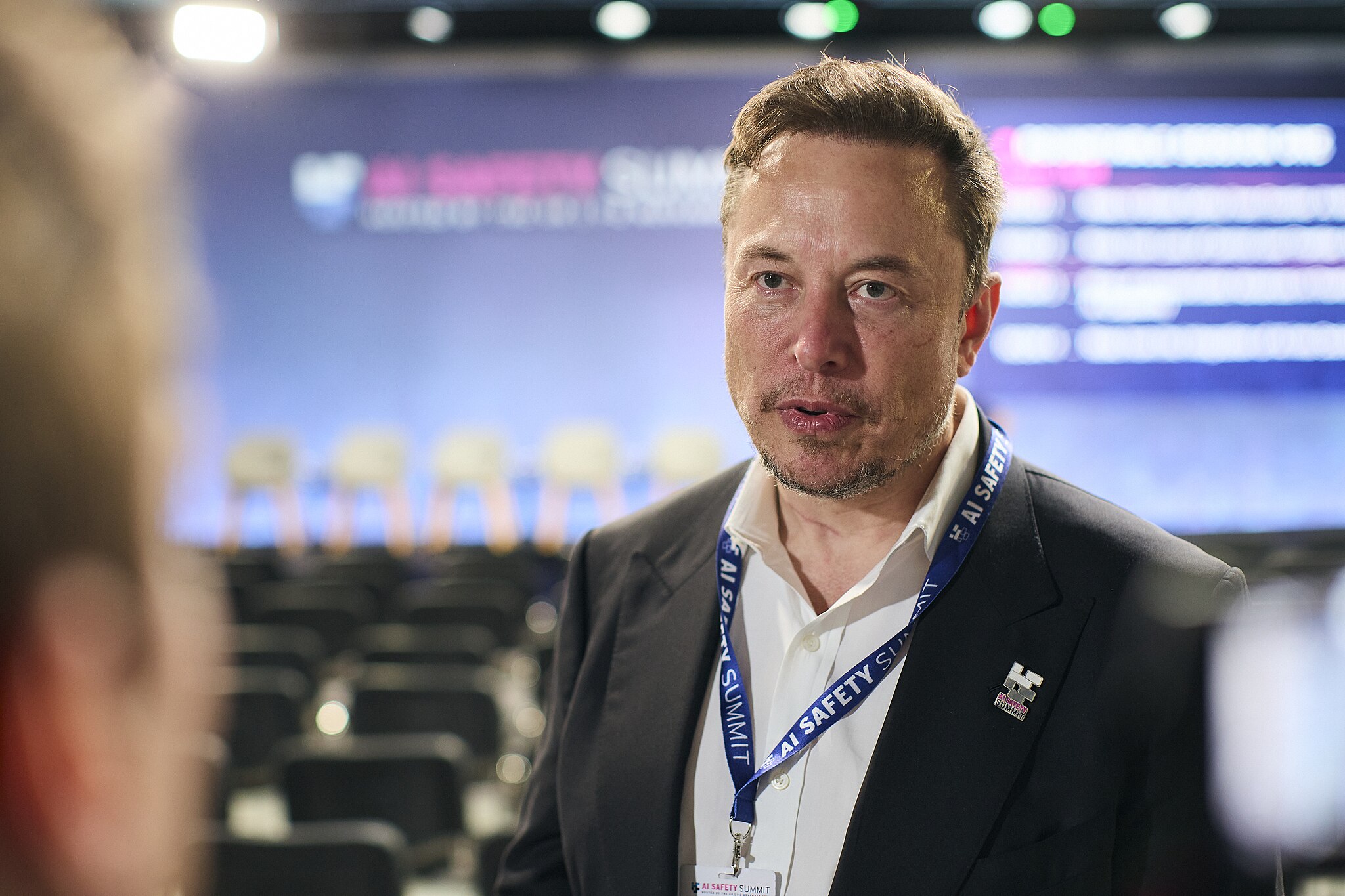
Elon Musk fired back at Wikipedia co-founder Jimmy Wales after the longtime online encyclopedia leader dismissed xAI’s new AI-powered alternative, Grokipedia, as a “ridiculous” idea that is bound to fail.
Musk’s response to Wales’ comments, which were posted on social media platform X, was short and direct: “Famous last words.”
Wales made the comments while answering questions about Wikipedia’s neutrality. According to Wales, Wikipedia prides itself on neutrality.
“One of our core values at Wikipedia is neutrality. A neutral point of view is non-negotiable. It’s in the community, unquestioned… The idea that we’ve become somehow ‘Wokepidea’ is just not true,” Wales said.
When asked about potential competition from Grokipedia, Wales downplayed the situation. “There is no competition. I don’t know if anyone uses Grokipedia. I think it is a ridiculous idea that will never work,” Wales wrote.
After Grokipedia went live, Larry Sanger, also a co-founder of Wikipedia, wrote on X that his initial impression of the AI-powered Wikipedia alternative was “very OK.”
“My initial impression, looking at my own article and poking around here and there, is that Grokipedia is very OK. The jury’s still out as to whether it’s actually better than Wikipedia. But at this point I would have to say ‘maybe!’” Sanger stated.
Musk responded to Sanger’s assessment by saying it was “accurate.” In a separate post, he added that even in its V0.1 form, Grokipedia was already better than Wikipedia.
During a past appearance on the Tucker Carlson Show, Sanger argued that Wikipedia has drifted from its original vision, citing concerns about how its “Reliable sources/Perennial sources” framework categorizes publications by perceived credibility. As per Sanger, Wikipedia’s “Reliable sources/Perennial sources” list leans heavily left, with conservative publications getting effectively blacklisted in favor of their more liberal counterparts.
As of writing, Grokipedia has reportedly surpassed 80% of English Wikipedia’s article count.
News
Tesla Sweden appeals after grid company refuses to restore existing Supercharger due to union strike
The charging site was previously functioning before it was temporarily disconnected in April last year for electrical safety reasons.
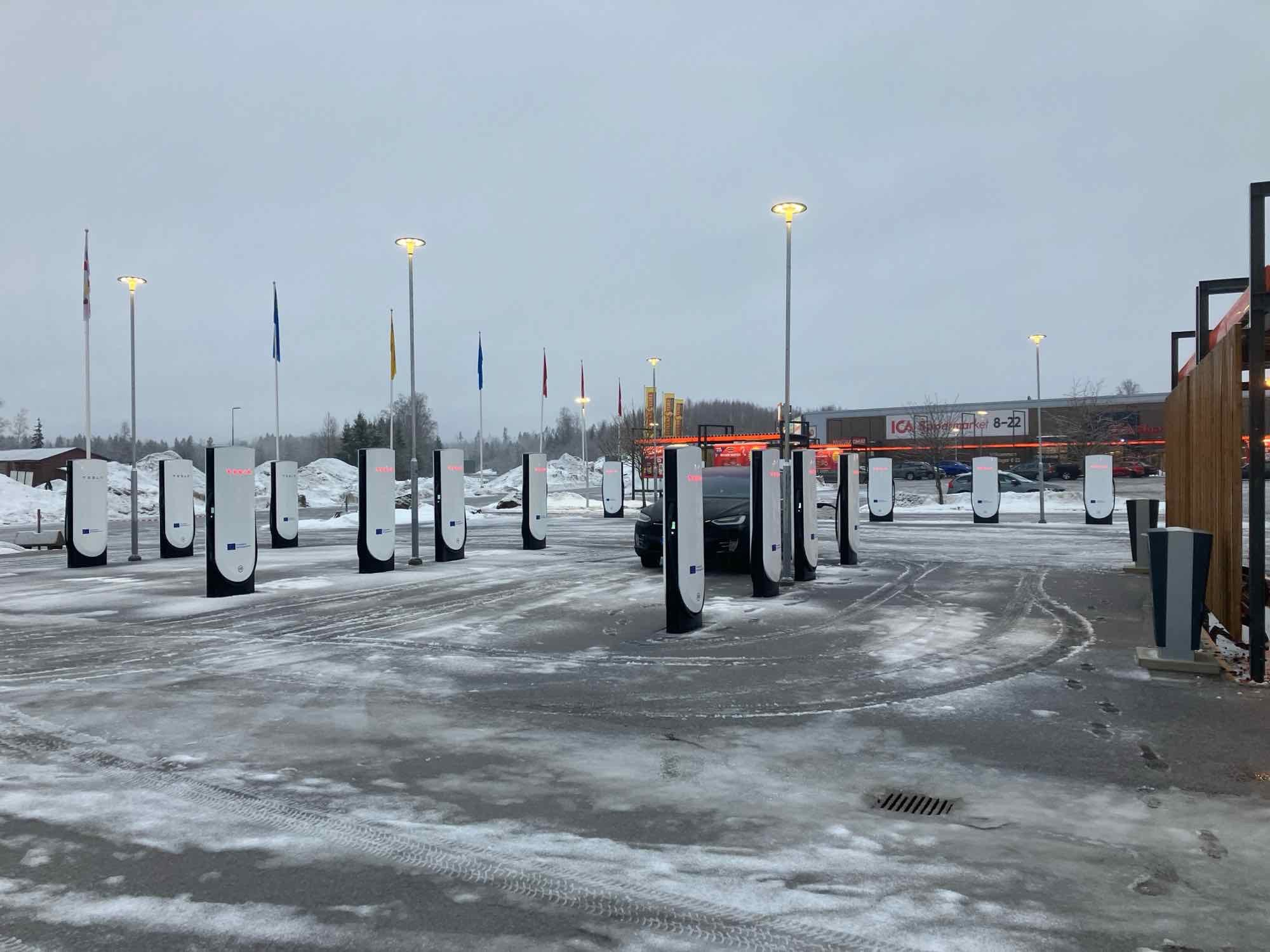
Tesla Sweden is seeking regulatory intervention after a Swedish power grid company refused to reconnect an already operational Supercharger station in Åre due to ongoing union sympathy actions.
The charging site was previously functioning before it was temporarily disconnected in April last year for electrical safety reasons. A temporary construction power cabinet supplying the station had fallen over, described by Tesla as occurring “under unclear circumstances.” The power was then cut at the request of Tesla’s installation contractor to allow safe repair work.
While the safety issue was resolved, the station has not been brought back online. Stefan Sedin, CEO of Jämtkraft elnät, told Dagens Arbete (DA) that power will not be restored to the existing Supercharger station as long as the electric vehicle maker’s union issues are ongoing.
“One of our installers noticed that the construction power had been backed up and was on the ground. We asked Tesla to fix the system, and their installation company in turn asked us to cut the power so that they could do the work safely.
“When everything was restored, the question arose: ‘Wait a minute, can we reconnect the station to the electricity grid? Or what does the notice actually say?’ We consulted with our employer organization, who were clear that as long as sympathy measures are in place, we cannot reconnect this facility,” Sedin said.
The union’s sympathy actions, which began in March 2024, apply to work involving “planning, preparation, new connections, grid expansion, service, maintenance and repairs” of Tesla’s charging infrastructure in Sweden.
Tesla Sweden has argued that reconnecting an existing facility is not equivalent to establishing a new grid connection. In a filing to the Swedish Energy Market Inspectorate, the company stated that reconnecting the installation “is therefore not covered by the sympathy measures and cannot therefore constitute a reason for not reconnecting the facility to the electricity grid.”
Sedin, for his part, noted that Tesla’s issue with the Supercharger is quite unique. And while Jämtkraft elnät itself has no issue with Tesla, its actions are based on the unions’ sympathy measures against the electric vehicle maker.
“This is absolutely the first time that I have been involved in matters relating to union conflicts or sympathy measures. That is why we have relied entirely on the assessment of our employer organization. This is not something that we have made any decisions about ourselves at all.
“It is not that Jämtkraft elnät has a conflict with Tesla, but our actions are based on these sympathy measures. Should it turn out that we have made an incorrect assessment, we will correct ourselves. It is no more difficult than that for us,” the executive said.








